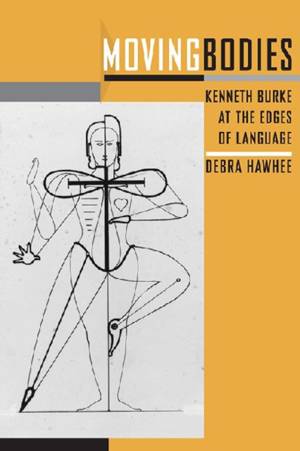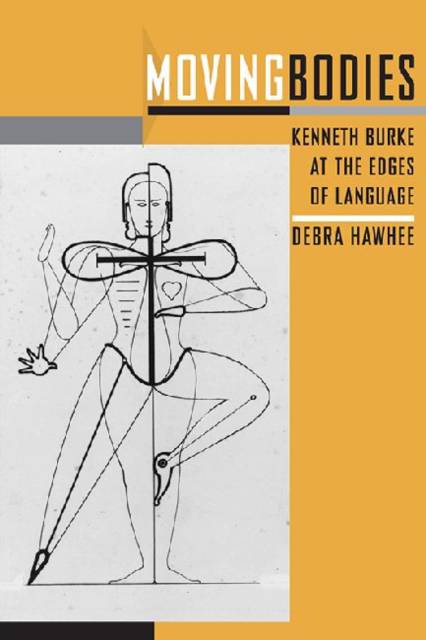
- Afhalen na 1 uur in een winkel met voorraad
- Gratis thuislevering in België vanaf € 30
- Ruim aanbod met 7 miljoen producten
- Afhalen na 1 uur in een winkel met voorraad
- Gratis thuislevering in België vanaf € 30
- Ruim aanbod met 7 miljoen producten
Omschrijving
A sophisticated study of how bodies and language move and are moved by each other
Kenneth Burke may be best known for his theories of dramatism and of language as symbolic action, but few know him as one of the twentieth century's foremost theorists of the relationship between language and bodies. In Moving Bodies, Debra Hawhee focuses on Burke's studies from the 1930s, 40s, and 50s while illustrating that his interest in reading the body as a central force of communication began early in his career.
By exploring Burke's extensive writings on the subject alongside revealing considerations of his life and his scholarship, Hawhee maps his recurring invocation of a variety of disciplinary perspectives in order to theorize bodies and communication, working across and even beyond the arts, humanities, and sciences.
Burke's sustained analysis of the body drew on approaches representing a range of specialties and interests, including music, mysticism, endocrinology, evolution, speech-gesture theory, and speech-act theory, as well as his personal experiences with pain and illness. Hawhee shows that Burke's goal was to advance understanding of the body's relationship to identity, to the creation of meaning, and to the circulation of language. Her study brings to the fore one of Burke's most important and understudied contributions to language theory, and she establishes Burke as a pioneer in a field where investigations into affect, movement, and sense perception broaden understanding of physical ways of knowing.
Specificaties
Betrokkenen
- Auteur(s):
- Uitgeverij:
Inhoud
- Aantal bladzijden:
- 232
- Taal:
- Engels
- Reeks:
Eigenschappen
- Productcode (EAN):
- 9781611170900
- Verschijningsdatum:
- 2/05/2012
- Uitvoering:
- Paperback
- Formaat:
- Trade paperback (VS)
- Afmetingen:
- 140 mm x 221 mm
- Gewicht:
- 299 g

Alleen bij Standaard Boekhandel
Beoordelingen
We publiceren alleen reviews die voldoen aan de voorwaarden voor reviews. Bekijk onze voorwaarden voor reviews.








